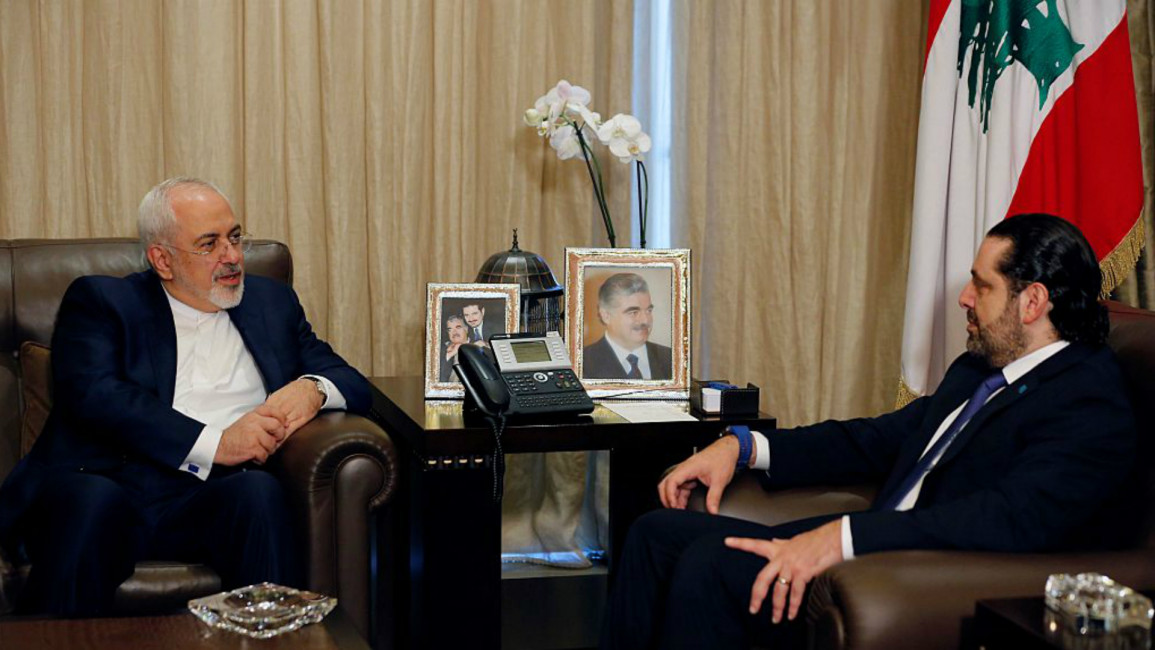
How will Lebanon fit into Trump's foreign policy?
On November 8, as polling stations were about to open to elect the new US President, Iranian Minister Jawad Zarif was in Beirut meeting with the Saudi-backed Lebanese Prime Minister-designate Saad Hariri.
What was striking about the recent developments in Lebanon, is that the ruling elite did not bother waiting for the outcome of the US presidential race, as they typically do. Instead, they went ahead on October 31 and sealed the deal on a power sharing agreement that had the blessing of both Riyadh and Tehran.
When President Donald Trump is sworn in to office on January 20, Lebanon may or may not have a new government in place. However, the next US administration already has its work cut out.
The selection of former General Michel Aoun as President has ended a 30-month impasse and reshuffled the dynamics of the country's political scene. This emerging status quo in Lebanese politics will likely limit the US options moving forward.
Since 2011, there had been no visible US policy in Lebanon.
Intermittent US interest aimed to encourage the Lebanese government not to close the border, as refugees were fleeing the bloodshed in Syria (2011-2013) and to help the Lebanese army contain the Islamic State attempts to seize control of the Lebanese-Syrian border (2014-2015).
 |
Washington's leverage remains in withholding US military assistance to the Lebanese army |  |
However, the overarching US objective was to maintain stability in Lebanon as regional turmoil set in. A second element of US policy was to encourage Lebanon's ruling elite to adopt the necessary legal and logistic tools to explore the country's untapped offshore oil and gas. Beyond these parameters, we should not expect the Trump administration to elaborate any meaningful Lebanon policy.
One of Trump's Middle East advisors, Lebanese born Walid Phares, told MTV, a local Lebanese TV station, on November 9th that Trump wants to protect Lebanon from regional turmoil and help the country go out of the status quo.
Although it is not clear yet to what extent Phares will have a prominent role in shaping the US policy in the Middle East, his anti-Hizballah views might inform the Trump administration's approach, even though regional politics is now dictating the rules of the game in Lebanon.
Effectively in place since end of 2014, the truce between Iran and Saudi Arabia in Lebanon recently took a step forward. Riyadh is warming up to the newly elected President, a Hizballah ally, while an Iranian senior official met with Hariri for the first time in six years.
Yet, these developments are far from being more than a 'détente'. Days before the election of Aoun on October 31, Saudi Minister Thamer al-Sabhan visited Beirut where he met all major Lebanese political parties, except for Hizballah.
Al-Sabhan previously served as ambassador to Iraq before Baghdad declared him persona non-grata last September for his criticism of the Iranian-backed Hashd al-Shaabi. Sending al-Sabhan, instead of another Saudi official, was a defiance to Tehran.
 |
The only way a Trump administration might have a direct impact on Lebanon is by changing these regional dynamics |  |
Furthermore, as the compromise in Lebanon was reached, Saudi Arabia reiterated on October 24 that its policy to deter Hizballah activities will not change while Hizballah chief Hassan Nasrallah made it clear on October 23 that the return of Hizballah fighters from Syria is non-negotiable.
The only way a Trump administration might have a direct impact on Lebanon is by changing these regional dynamics, mainly in the US approach to the Syrian war and vis-a-vis Iran's regional activities. Beyond that, an attempt to deter Hizballah by supporting allies in Lebanon will end up isolating Hariri, given the current balance of power in Lebanese politics.
The political divide between "March 8" and "March 14" that marked the US intervention between 2005 and 2009, no longer exists, hence the chances of a successful US intervention are slim.
Washington's leverage remains in withholding US military assistance to the Lebanese army and in targeting Hizballah's financial assets through the country's banking system. Furthermore, opening a front in Lebanon is a distraction from other US regional priorities.
If the Trump administration intends to implement its policy of focusing on Islamic State, and discontinuing support for the Syrian opposition, this will have no direct impact on Lebanon. What will matter most, is how the US relations with Saudi Arabia and Iran will evolve.
A US-Saudi decision to deter Iran's regional activities will likely shake up Lebanese politics. Regardless of the US objectives in the Middle East, sustaining the non-priority status of Lebanon in Washington might be the safest option for the country itself, and for the Trump administration.
Joe Macaron is a Policy Analyst at Arab Center Washington DC.
Follow the latest on-the-ground analyses of the Arab Center Washington DC.
Opinions expressed in this article remain those of the author, and do not necessarily represent those of The New Arab, its editorial board or staff.




